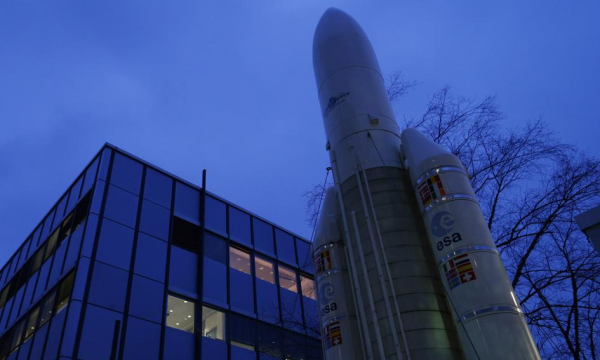Poland has a chance to join the ranks of countries where the European Space Agency has its centers, former head of POLSA, Professor Grzegorz Wrochna, confirmed in an interview with PAP. In his opinion, this would be another step in building our position in space in Europe and globally.

Prime Minister Donald Tusk announced that Poland is seeking to build a European Space Agency (ESA) facility in Poland at a press conference on July 24 after meeting with astronaut Sławosz Uznański-Wiśniewski. He said that Finance and Economy Minister Andrzej Domański had discussed the plans with ESA Director General Josef Aschbacher. President of the Polish Space Agency (POLSA), Marta Wachowicz, added that the ESA facility would be dedicated to dual-use technologies (meaning those intended for both civilian and military purposes – PAP).
Our country's efforts to launch such a center were confirmed in an interview with PAP by Prof. Grzegorz Wrochna from the Association of Polish Space Industry Entrepreneurs, who headed POLSA until March 2025.
“The European Space Agency's headquarters is located in Paris, but there are also centers near Munich and Cologne, where our astronaut trained, a large center in the Netherlands, and smaller ones in the UK and Austria. It would be truly worthwhile for Poland to have such a center as well. It would be another step in building our position in space in Europe and globally – after increasing our contribution to ESA three years ago and sending an astronaut on a mission to the International Space Station,” he emphasized.
When asked about the location of the potential center, he replied that it was a government decision. “It would definitely have to be built in a large center with good academic facilities and connections to the world, including an airport,” the source explained to PAP.
The center would develop technologies that serve broadly defined security. “The term 'dual-use technologies' is no longer relevant today. We live in a time of hybrid warfare, which also includes IT attacks, electromagnetic attacks, disinformation, and propaganda. These are not necessarily carried out by the military. To this must be added individual attacks on infrastructure and border incidents. At the same time, we are dealing with climate change and increasingly frequent extreme weather phenomena, including floods and large forest fires,” noted Professor Wrochna.

He added that the effects of military and terrorist attacks, as well as natural disasters and accidents, are often similar and one should prepare for them and minimize their effects in a similar way.
“In all these cases, we must secure the basic functioning of essential infrastructure. Therefore, we need, among other things, Earth imaging, both optical and radar, conducted from satellites and drones. We also need broadband internet access, encrypted communications for special purposes, positioning, and time distribution. Such technologies are also used every day, for example, to support agriculture, transportation, and energy transmission. We also need to know what's happening in orbit, whether our satellites are in danger of collision, whether someone is listening to them, and who is observing us and when. Therefore, we need to monitor satellites and launch them into orbit. We also need appropriate technologies for these purposes,” the former president of POLSA mentioned.
He noted that ESA is already working on many of these technologies, including with Polish participation, particularly in the “Civil Security from Space” program. The results are then available to all member states. “However, we expect that if such a center were established in Poland, our country would play a dominant role. Therefore, orders for these projects, for example, specific satellites, ground equipment, and software, will be directed primarily to our companies and research institutions. This means that Polish companies and institutions will possess the entire technology, all its details. They will therefore be able to produce satellites specifically for our country, over which we will have complete control,” emphasized Professor Wrochna.
He also considered the opportunity to develop space personnel to be exceptionally important. “The benefit would be twofold. On the one hand, the ESA center will need specialists, and on the other hand, the companies that will be commissioned to run programs there will need them,” he pointed out.
According to Professor Wrochna, the ESA center in Poland would be financed by contributions from all countries interested in the program. He added that it is currently difficult to estimate Poland's financial contribution to its creation.
“It depends on the specific programs, and the range of possibilities is very wide. However, it's worth remembering that in Poland, we spend only 0.03% of our national income on space technologies. Meanwhile, we will soon allocate 5% to defense. Observing the rapidly growing role of satellite technologies in modern defense, I believe their share in the total state defense spending should grow just as rapidly. This is especially true since these are investments that pay off – in monetary terms, but also in the security of the state and its citizens, and the country's resilience to various crises,” said the former head of POLSA.
In his opinion, it is “absolutely essential” that Poland develops its own space technology capabilities. The ESA center will be invaluable in this regard.
“This is about our security. We can't afford to buy everything abroad, because we'll never be independent. We need to master the necessary technologies and develop our own production. The only choice is whether we develop these technologies ourselves, almost from scratch, or within the European Space Agency,” he emphasized.
Marek Matacz (PAP)
mat/ agt/ ktl/






